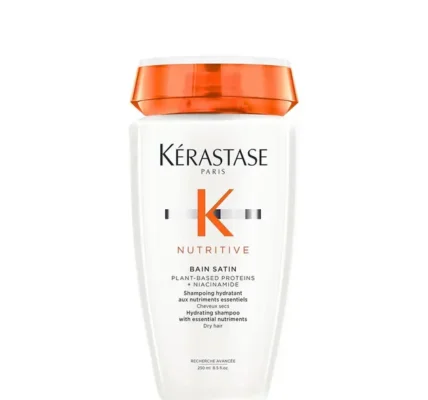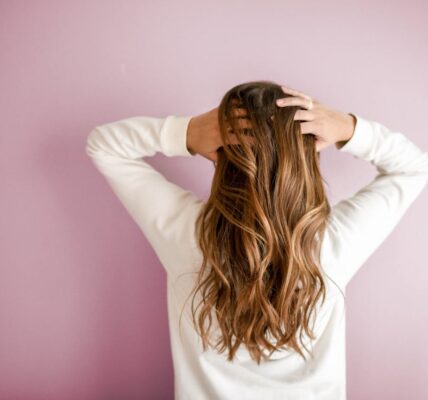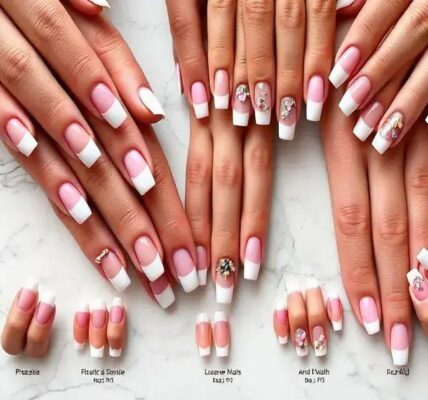Struggling with oily hair? You’re not alone. Oily hair treatment is essential for maintaining an attractive and clean appearance. It’s crucial to understand what causes excess oil and how you can tackle it effectively. Whether you’re dealing with daily grease or occasional shine, there are simple remedies and strategies that can transform your hair. From home solutions to professional treatments, the right approach can make all the difference. Let’s dive into the best tips and practices to keep your hair fresh and healthy.
Understanding the Causes of Oily Hair
Oily hair can be frustrating, but understanding its root causes is essential for effective treatment. The primary reason behind oily hair is the overproduction of sebum by the scalp’s sebaceous glands. Sebum is a natural oil that helps protect and moisturize the scalp and hair, but excessive amounts can lead to greasy locks.
Hormonal changes, such as puberty or pregnancy, can trigger increased sebum production. Genetics also play a crucial role; if your parents have oily hair, it’s more likely you will have it too. Additionally, environmental factors like humidity or pollution can contribute to the problem.
Frequent washing might seem like a solution, but it can strip the scalp of its natural oils, prompting even more sebum production. Using the wrong hair products can also exacerbate the issue. For example, conditioners and shampoos containing heavy oils or silicones can weigh down hair, making it appear greasier.
Dietary habits might impact oiliness as well. A diet high in processed foods, sugars, or unhealthy fats could potentially increase sebum production. Stress is another factor that might affect oil levels, as it can alter hormone production and lead to oilier hair.
Understanding these causes allows individuals to adopt targeted strategies to manage and treat oily hair more effectively, contributing to healthier hair overall.
Effective Home Remedies for Oily Hair
Lemon Juice and Honey: Lemon juice is a natural astringent. It helps balance the pH level of the scalp, controlling excessive oil production. Combine it with honey, which is a natural humectant, to nourish the hair without adding grease. Mix two tablespoons of lemon juice with two tablespoons of honey. Apply to your scalp and leave it on for 15 minutes. Rinse off with lukewarm water.
Apple Cider Vinegar Rinse: With its acidic nature, apple cider vinegar restores the natural pH balance of the scalp and helps remove built-up residue that might lead to oiliness. Dilute a few tablespoons of apple cider vinegar with water and use this solution as a rinse after shampooing your hair. Do it twice a week for best results.
Aloe Vera Gel: Aloe vera is known for its skin-soothing properties. It can cleanse the scalp, removing impurities, and controlling the secretion of excess oil. Combine aloe vera gel with a little lemon juice and apply it to your scalp. Leave it on for 20 minutes before rinsing it off thoroughly.
Baking Soda: Baking soda acts as an exfoliant, helping to absorb the excess oil in your hair. Create a paste with baking soda and water, and apply it to your roots. Leave it for ten minutes and then rinse thoroughly. Do this no more than once a week to avoid excessive dryness.
Tea Tree Oil: Known for its antibacterial properties, tea tree oil can help unclog hair follicles and decrease the production of excess sebum. Add a few drops to your shampoo or dilute with a carrier oil and apply directly to the scalp for effective results.
All these remedies are easily available and safe to use. They not only tackle oily hair but also improve the scalp’s overall health, promoting cleaner and fresher hair. Use these tips to maintain the perfect balance for your hair.
Choosing the Right Shampoo for Greasy Scalp
When it comes to managing an oily scalp, selecting the right shampoo is crucial for maintaining a balanced level of natural oils without exacerbating the greasiness. The choice of shampoo should focus on gentle cleansing properties that can remove excess oil effectively without stripping your hair.
Look for shampoos labeled as ‘clarifying’ or ‘volumizing’, as these are formulated to remove product buildup and excess sebum. These shampoos typically contain ingredients like salicylic acid or tea tree oil, which can help break down oily residue on the scalp. A crucial aspect is to avoid using heavy conditioners or moisturizing shampoos, which might add more oil to an already greasy scalp.
Moreover, it’s vital to consider the frequency of washing. While some people may think washing more often is beneficial, over-washing can actually make the scalp produce more oil. Aim to wash every other day or two to three times a week, monitoring how your scalp responds to adjust accordingly.
Incorporating natural ingredients can also be beneficial. Shampoos with ingredients like lemon, green tea, or aloe vera might offer gentle cleansing and soothing properties, helping to maintain scalp health without irritation or excess oil production.
Lastly,
beware of sulfates and parabens.
These chemicals can often irritate the scalp and lead to increased oil production, so opt for sulfate-free alternatives to ensure a balanced approach.
Selecting the right shampoo is an integral step in combating oily hair, setting the foundation for effective oil control and healthier-looking hair.
Daily Habits to Reduce Oiliness
Incorporate simple and effective daily habits to manage excessive scalp oil production. Regular cleansing is crucial, but avoid washing too frequently as this can activate the sebaceous glands to produce even more oil. Instead, focus on washing your hair every 2-3 days with lukewarm water to maintain a natural balance.
Brush your hair strategically – start from the scalp to distribute oils along the strands, reducing the concentration at the roots. Choose a brush with natural bristles for better effectiveness. Alongside brushing, ensure your hair care tools are clean to prevent transferring oils back to your hair.
Manage stress levels as they can significantly influence oil production. Consider relaxation techniques such as meditation or yoga.
Be mindful of your diet as a significant portion of your nutrition can reflect on your scalp health. Incorporate more fruits and vegetables to support your hormonal balance, which directly affects oil secretion.
Adjust your styling routine by minimizing the use of heavy styling products, which might weigh down your hair and make it appear oily faster. Opt for light, water-based styling aids and avoid touching your hair frequently throughout the day.
Top Ingredients to Look for in Hair Products
When searching for hair products that effectively manage oily hair, it’s crucial to focus on key ingredients that can help regulate oil production and nourish the scalp.
Salicylic Acid
effectively exfoliates the scalp, removing excess oil and dead skin cells. This ingredient clears the hair follicles and reduces potential blockages that can lead to excess oil production.
Tea Tree Oil is known for its natural antimicrobial properties. It helps prevent the growth of bacteria and fungi on the scalp, which can often exacerbate oiliness. Lemon Extract provides a natural astringent quality, helping to tighten the scalp’s pores and reducing the overall oil secretion.
Witch Hazel
is another excellent ingredient to look for, as it is effective in controlling sebum production while providing a soothing effect on the scalp. Products containing aloe vera offer a moisturizing quality without adding unnecessary oils, making it perfect for balancing hydration in hair that tends to be greasy.
Finally, consider products that feature charcoal or kaolin clay. These ingredients are adept at absorbing excess oils and impurities from the scalp, promoting a cleaner and fresher appearance. By incorporating these ingredients into your hair care routine, you can manage oiliness more effectively while maintaining a healthy scalp environment.
Importance of a Balanced Diet for Hair Health
A balanced diet plays a crucial role in maintaining the health of your hair. Nutrients such as vitamins, minerals, and proteins are essential for hair growth, strength, and overall condition. Consuming foods rich in vitamins A, C, and E can promote a healthier scalp environment. These vitamins help in producing sebum, which keeps your scalp moisturized and reduces oiliness. A diet that includes plenty of fruits, vegetables, nuts, and lean proteins ensures your hair gets the necessary nutrients.
Omega-3 fatty acids found in fish like salmon and sardines are known for improving hair shine and reducing inflammation, which can contribute to a healthier scalp. Iron and zinc are also key minerals that aid in hair growth and repair. Iron helps red blood cells carry oxygen to the hair follicles, promoting growth.
Proteins are fundamental since hair is mostly made of keratin, a type of protein. Ensure a good intake of lean meats, dairy, or plant-based sources to maintain the hair structure. In addition, water intake is just as important. Staying hydrated helps in flushing out toxins and keeping hair roots hydrated.
Avoid excessive sugar and processed food intake as they can lead to hormonal imbalances, contributing to an oily scalp. A diet enriched with diverse, whole foods can drastically enhance hair health, potentially reducing excessive oil production over time.
Professional Treatments for Persistent Oily Hair
For those grappling with persistent oily hair, professional treatments are often considered a life-saver. These treatments provide targeted solutions that address the root cause of excess oil production, offering relief where over-the-counter products may fall short.
Scalp Treatments are popular among those with an overly oily scalp. These treatments often involve exfoliation to remove excess sebum and dead skin cells, promoting a clean and healthy environment for hair growth. Salons may use specialized brushes or high-frequency devices to enhance the treatment’s effectiveness.
Clarifying Treatments help eliminate product buildup and deeply cleanse the scalp. These treatments can be particularly effective if traditional shampoos fail to remove residues that may be contributing to oiliness.
Customized Hair Masks can also offer respite. Professionals customize these masks to your hair type, often incorporating ingredients such as clay or activated charcoal, which help absorb oil and impurities.
Some stylists recommend keratin treatments, which can help stabilize the hair’s natural oil levels. While primarily intended to smooth and straighten hair, these treatments can reduce the frequency of oiliness for some individuals.
Regular salon visits for a deep cleanse and scalp care can be pivotal, as professionals can provide insights into potential underlying issues that might be causing oiliness. Consulting a dermatologist or trichologist may also be beneficial, providing access to prescription treatments or specialized shampoos unavailable over the counter.
If home remedies and daily habits have not been effective enough, exploring these professional options might provide the breakthrough needed for managing oily hair effectively.
Mistakes to Avoid to Prevent Greasy Hair
One of the most common mistakes in dealing with greasy hair is overwashing. Overwashing can strip the scalp of its natural oils, prompting it to produce even more oil as a compensatory mechanism. It’s important to find a balance, and showering every other day might be more beneficial than washing daily.
Avoid using heavy conditioners on the scalp. Conditioners are designed to moisturize, but applying them to the scalp can add unnecessary oiliness. Instead, focus on applying conditioner only to the ends of your hair where it’s most needed.
Improper rinsing is another pitfall. Ensure all products are thoroughly rinsed out, as any residue left behind can contribute to greasy buildup. Proper rinsing with cool water also helps to close the hair cuticles and reduce oil production.
Using the wrong styling products is also a significant error. Opt for products that are labeled as ‘lightweight’ or ‘for oily hair’, and don’t apply them too close to the roots to prevent weighing the hair down.
Touching your hair frequently throughout the day can transfer oils from your hands to your hair, exacerbating the problem. Try to avoid fussing with hair to keep it cleaner for longer.
Skipping regular hair cleaning implements, such as washing your hairbrushes and changing pillowcases regularly, can also cause oil accumulation. Dirty hair tools can redeposit oils and residue back onto your clean hair.



